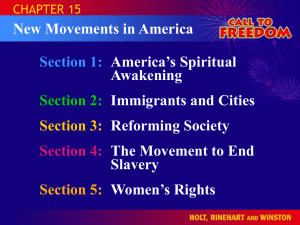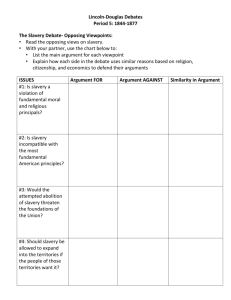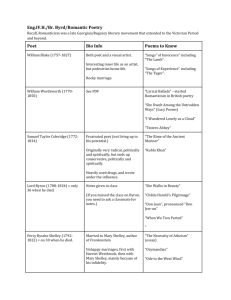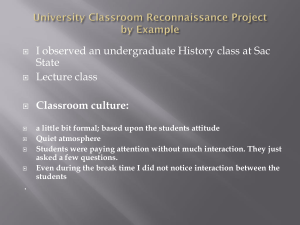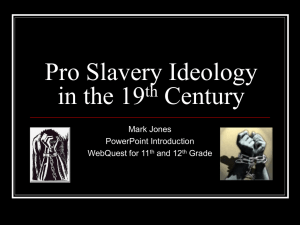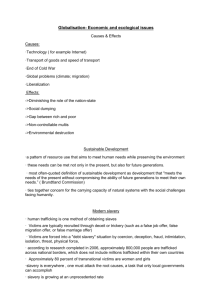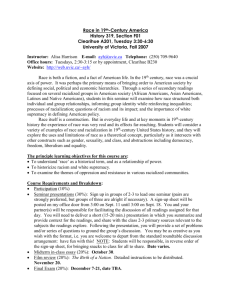Topics in Transnational Literature and Culture
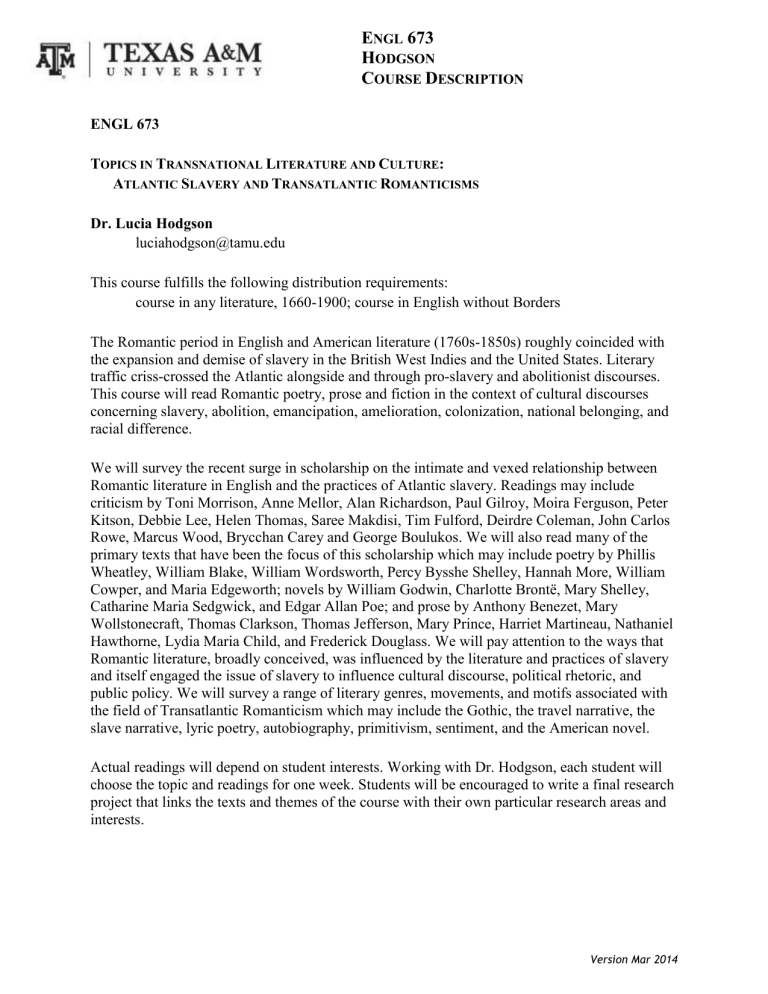
E
NGL
673
H ODGSON
C OURSE D ESCRIPTION
ENGL 673
T OPICS IN T RANSNATIONAL L ITERATURE AND C ULTURE :
A
TLANTIC
S
LAVERY AND
T
RANSATLANTIC
R
OMANTICISMS
Dr. Lucia Hodgson luciahodgson@tamu.edu
This course fulfills the following distribution requirements: course in any literature, 1660-1900; course in English without Borders
The Romantic period in English and American literature (1760s-1850s) roughly coincided with the expansion and demise of slavery in the British West Indies and the United States. Literary traffic criss-crossed the Atlantic alongside and through pro-slavery and abolitionist discourses.
This course will read Romantic poetry, prose and fiction in the context of cultural discourses concerning slavery, abolition, emancipation, amelioration, colonization, national belonging, and racial difference.
We will survey the recent surge in scholarship on the intimate and vexed relationship between
Romantic literature in English and the practices of Atlantic slavery. Readings may include criticism by Toni Morrison, Anne Mellor, Alan Richardson, Paul Gilroy, Moira Ferguson, Peter
Kitson, Debbie Lee, Helen Thomas, Saree Makdisi, Tim Fulford, Deirdre Coleman, John Carlos
Rowe, Marcus Wood, Brycchan Carey and George Boulukos. We will also read many of the primary texts that have been the focus of this scholarship which may include poetry by Phillis
Wheatley, William Blake, William Wordsworth, Percy Bysshe Shelley, Hannah More, William
Cowper, and Maria Edgeworth; novels by William Godwin, Charlotte Brontë, Mary Shelley,
Catharine Maria Sedgwick, and Edgar Allan Poe; and prose by Anthony Benezet, Mary
Wollstonecraft, Thomas Clarkson, Thomas Jefferson, Mary Prince, Harriet Martineau, Nathaniel
Hawthorne, Lydia Maria Child, and Frederick Douglass. We will pay attention to the ways that
Romantic literature, broadly conceived, was influenced by the literature and practices of slavery and itself engaged the issue of slavery to influence cultural discourse, political rhetoric, and public policy. We will survey a range of literary genres, movements, and motifs associated with the field of Transatlantic Romanticism which may include the Gothic, the travel narrative, the slave narrative, lyric poetry, autobiography, primitivism, sentiment, and the American novel.
Actual readings will depend on student interests. Working with Dr. Hodgson, each student will choose the topic and readings for one week. Students will be encouraged to write a final research project that links the texts and themes of the course with their own particular research areas and interests.
Version Mar 2014
